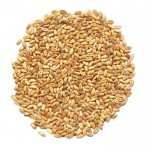Rommerskirchen, Germany – Here are our ‘plant protection’ products,” Willi Kremer Schilling told a delegation of foreign journalists as they entered the fortress-like warehouse at the Buir-Bilesheimer Agricultural Co-operative. “I never say ‘pesticides,” he said. “These are ‘medicines’ for plants.” Willi is one of the 1,150-member co-op’s farmer-directors and he proudly hosts tours of its new[...]













